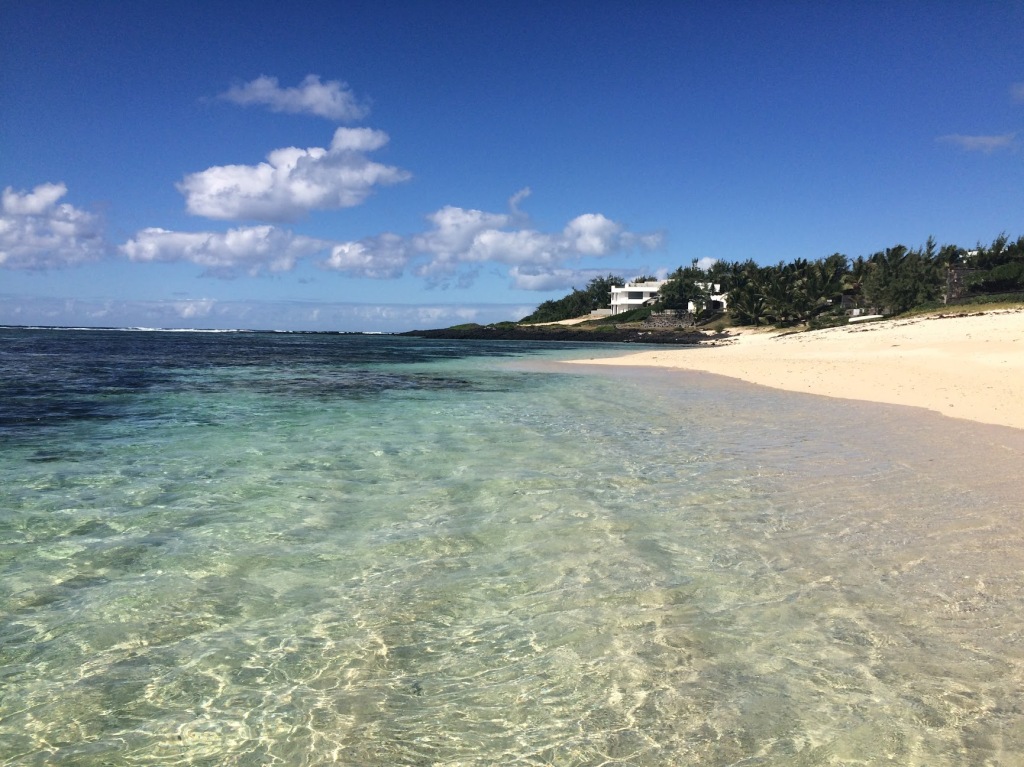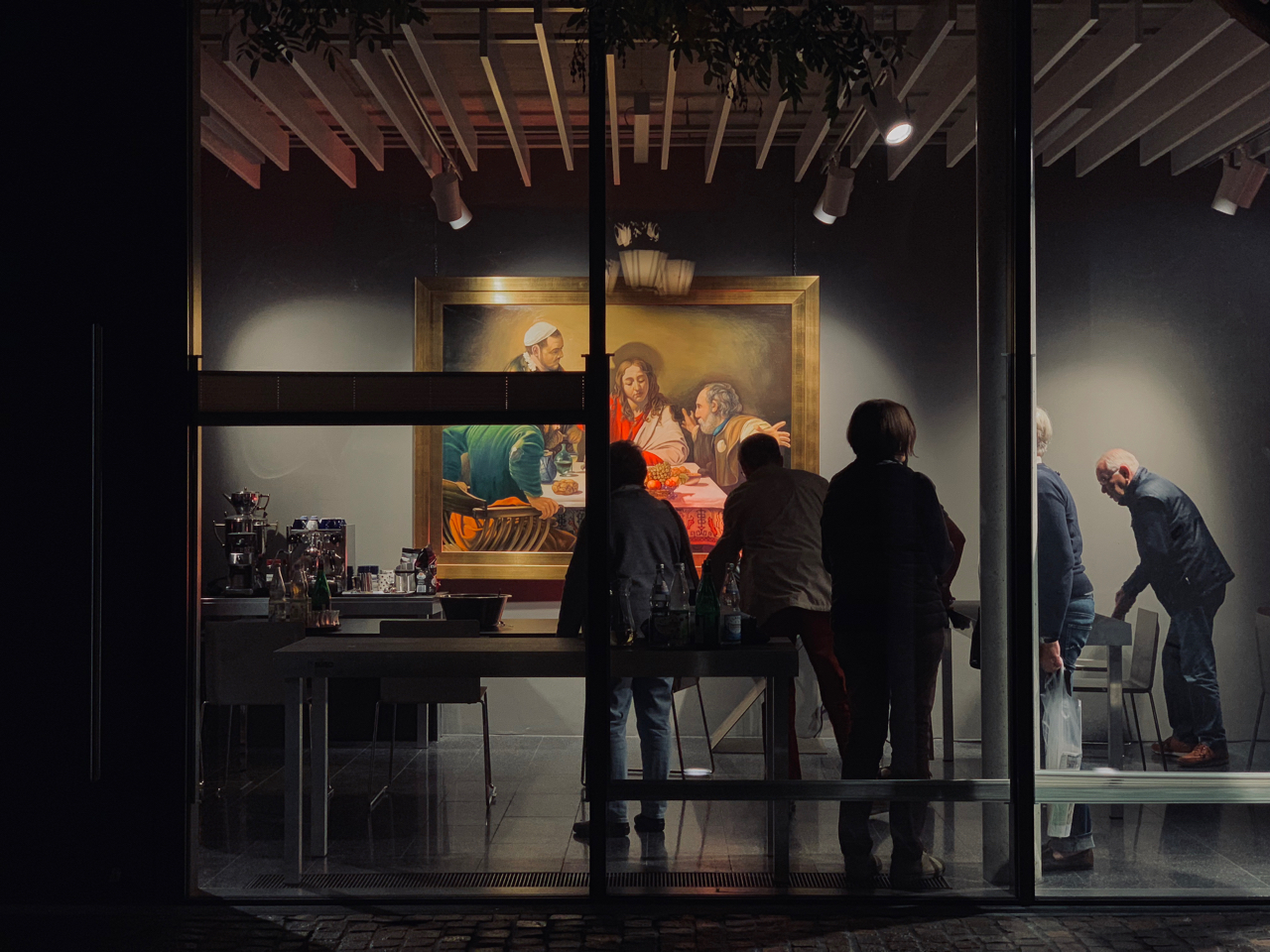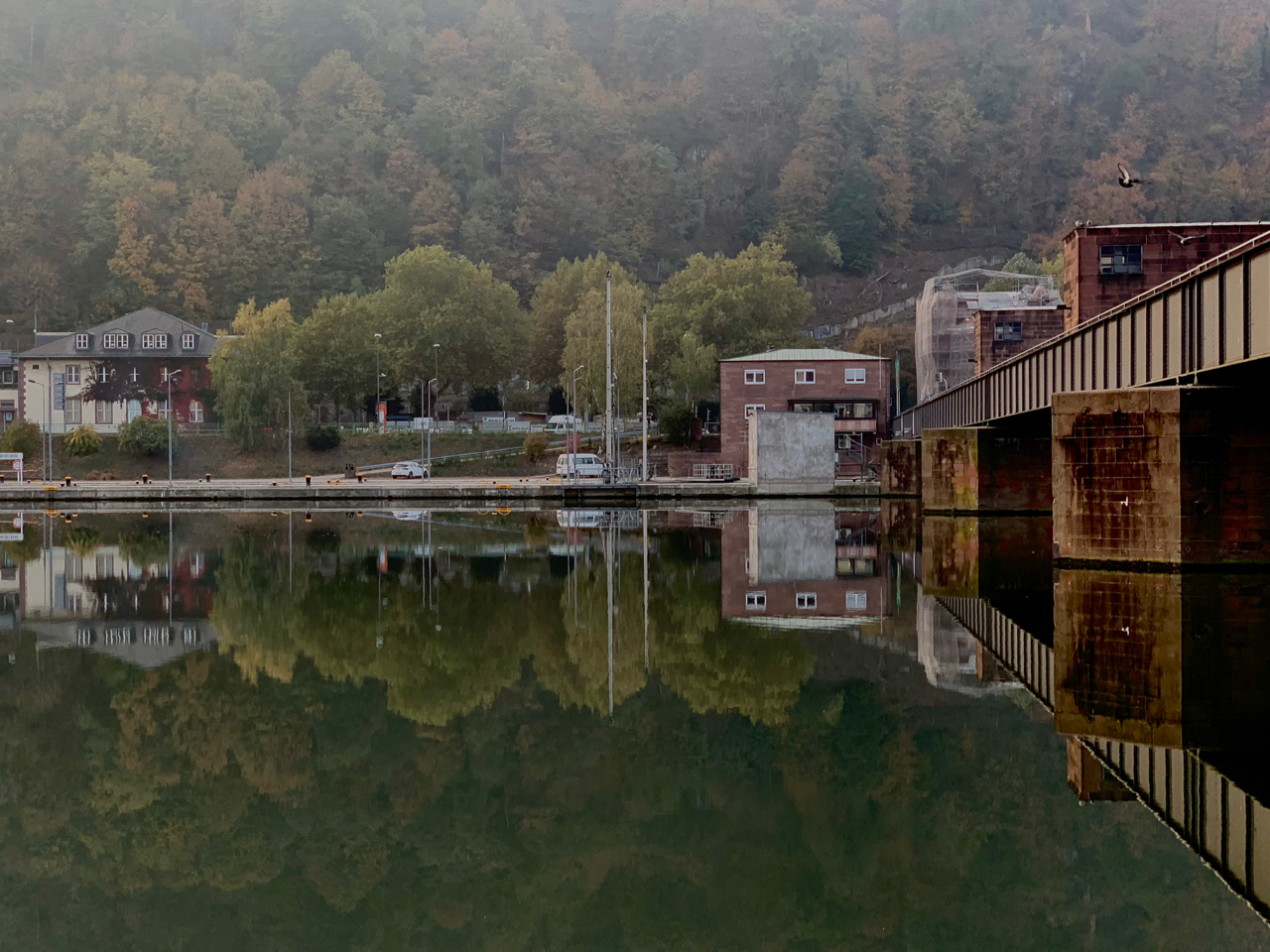The house across the street is a two storey building whose roof terrace is in level with our balcony. Every morning I see an elderly man watering the plants along the terrace wall, pruning some branches, and feeding the pigeons. We have waved to each other several times, but we’ve never spoken.
A joint family lives in the house: the elderly man, his wife, and two young couples. I’ve seen the others at the gate, leaving for office when the city still permitted it, buying vegetables from a street vendor, or selling old newspapers to another trader.
The elderly man has been absent for a few days now; a young woman (his daughter? daughter-in-law?) cares for the plants. She’s all by herself on the terrace each morning, and yet she wears a surgical mask. And when I spot someone at the gate below, stepping outside in the morning to pick up the newspaper or to trace the rangoli, that person too is wearing a surgical mask. I’ve never seen these neighbours wearing masks before, and this new habit strikes a discordant note.
* * *
Our balcony faces a small street that connects two busy thoroughfares, and there’s a near-constant buzz of traffic on all weekdays. Following the lockdown, the street has turned silent. We only hear birds, squirrels, and dogs. And sometimes, in the distance, the siren of an ambulance.
* * *
The collective trauma this country is experiencing now is unique to the generations living through it. I haven’t experienced anything like this before, and neither have my parents. One has to go back almost seventy-five years, to the partition of 1947, for a collective experience of comparable magnitude. Suffering cannot be compared, of course — every trauma is unique, and no objective scale can measure suffering. But the magnitude here is something we haven’t seen in our lifetimes. Which makes me wonder if this period will see a similar historical reckoning as the partition. If not from history textbooks (which these days are edited by the right-wing ruling majority), then through literature, film, and other art forms.
A friend I spoke to about this was sceptical. The ruling party, he said, would soon wipe out all culpable evidence. He also seemed sure that few would care to write about this experience, or read what’s been written. People will move on, and this period will become a historical footnote.
I doubt that latter part — artists who bear witness will sooner or later bring this period into their work — but what’s more interesting is to examine why this friend thinks so.
Will this — the brushing aside and moving on — be the outcome of the stage of capitalism we are living through, a period where we are consumers interested solely in our conveniences and indifferent to everything else? Is it the pace of life these days that leaves little room for any sort of reckoning or contemplation? Have our shortened attention spans and distraction-filled days robbed us of the ability to consider anything deeply?
And if this shall be our response to the trauma we have lived through, then what can be expected of us to prevent a trauma we are yet to experience? I’m talking about climate change, yes.
* * *
I’m re-reading Camus’s The Plague. The novel is about an Algerian city named Oran that is hit by the plague. On the first reading, some years ago, I’d considered it a fascinating thought experiment. What had happened in Oran was the stuff of fiction, and back then I had not really entered that world — reading The Plague didn’t leave me feeling shaken or moved. I’d read it from a distance, and I was amused by the human behaviour revealed there. It was intellectually stimulating without being emotionally striking.
This time around the book has a different resonance. I’m struck by the strategies of denial, downplay, and inertia that occurs early on in the plague, something we’ve all lived through in the last year. I find myself underlining different sentences — not, unlike last time, abstract and literary-sounding ones, but sentences that resonate because of this lived experience behind me.
* * *
“The dead were brought there after nightfall, but there was not room enough, and the living fought each other with torches for a space where to lay those who had been dear to them.”
The city under a lockdown is a city that is supposed to sleep, but cannot. There are always ‘essential services’ that need to be delivered.
The newspaper is delivered. The milk is delivered. The garbage is picked up. Some people deliver groceries and essential consumer goods. Others collect and deliver dead bodies.
A friend who runs a funeral services company told me that these days she receives over two hundred calls each day. (Under normal circumstances, the volume is between thirty-five and fifty.) She cannot meet this rising demand because there aren’t enough hearse vans and freezer boxes, and the crematoriums are stretched beyond their limit.
* * *
“There have been as many plagues as wars in history; yet always plagues and wars take people equally by surprise.”
Is this what it is like during a war? There is fear: we are hiding in our homes and hoping the enemy does not strike. There is incomprehension: the enemy is abstract and this struggle pointless. There is propaganda: on rules to follow, on the severity of the situation, on vaccines. There is trauma, there are statistics, there is rage, there are people on the ‘front-line’, there’s the temporary suspension of freedom…
And amidst all this, there are also those who carry on as though nothing extraordinary was happening.







 In 1978, U.S. president Jimmy Carter brokered a Middle East peace treaty between Israel and Egypt at Camp David. The deal still stands — this is why you don’t hear news about Israel and Egypt fighting over Sinai, a piece of land that had seen three major wars in thirty years before this treaty — and is among the rare instances of successful negotiations towards peace.
In 1978, U.S. president Jimmy Carter brokered a Middle East peace treaty between Israel and Egypt at Camp David. The deal still stands — this is why you don’t hear news about Israel and Egypt fighting over Sinai, a piece of land that had seen three major wars in thirty years before this treaty — and is among the rare instances of successful negotiations towards peace.